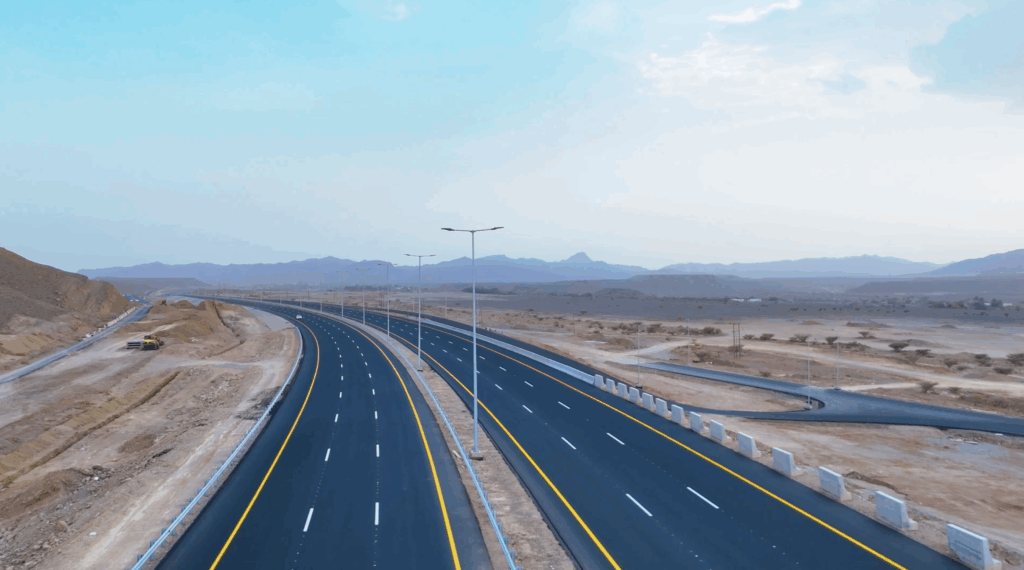MUSCAT – The year 2025 has seen the implementation of major strategic projects and innovative initiatives, resulting in significant progress in land and maritime transport, as well as in communications and digital transformation.
Investments in the logistics sector exceeded RO 2.6 billion by September 2025, while investments in the communications and information technology sector reached RO 140 million during the same period. The Ministry also disbursed more than RO 1.2 billion in private-sector dues for development projects between 2020 and 2025, including RO 227 million from January to August 2025. These expenditures mainly supported road networks, port infrastructure, maritime services and information technology. Moreover, Ministry revenues reached RO 26.6 million by the end of August 2025, an increase of RO 3.3 million compared with the same period in 2024.
The 2025 employment and Omanisation programme recorded notable progress. Omanisation in the ICT sector reached 67 percent across technical, specialized and leadership roles, while the logistics sector achieved 59 percent Omanisation by September 2025. The maritime employment initiative also helped qualify and employ 230 Omani seafarers.
Read More
- ROP detains 32 motorists in Muscat for causing public disturbance
- Oman launches official Omani Rial symbol
- Omani family of six found dead in Al Amerat; Initial probe points to carbon monoxide exposure
- Public parking and transport arrangements announced for Oman’s National Day Fleet Review
- Oman’s higher education centre announces 1,808 seats in second allocation for 2025/2026
Regulation of the express delivery sector contributed to employing 140 Omanis, while more than 10,000 national talents were trained through the Makeen initiative from 2021 to 2025. The Ministry additionally issued a framework to stimulate local content within the ICT sector.
Oman advanced in several global rankings in 2024–2025. It rose 6 percent in ESCWA’s 2024 e-Government and Mobile Services Maturity Index, and ranked first in the Arab world and 50th globally in the 2025 Postal Development Index. The Sultanate also ranked first in West Asia and ninth globally for open data, and secured membership in the Postal Investment Council for 2025–2029.
In the Digital Economy Explorer Index, Oman ranked first regionally in digital inclusion and gender equality, and achieved a perfect score in technological innovation legislation. The country recorded strong growth across several pillars: digital innovation (44.5 percent), digital inclusion (36.2 percent), core ICT activities (33.5 percent) and digital finance (29.3 percent).

The Ministry is implementing 60 development projects valued at more than RO 1 billion, including 20 projects that have exceeded 70 percent completion.
Key projects include
- Sultan Turki bin Said Road (Sharqiyah Expressway, Part 2): 74 percent complete.
- Sultan Faisal bin Turki Road (Dibba–Lima–Khasab): 58 percent complete, ahead of schedule.
- Sultan Said bin Taimur road sections in Dhofar: work underway on phases three, four and five.
- Harweeb–Metin Road: 185 km of 210 km completed.
- Izki–Nizwa–Qarut South dual carriageway: 7 percent complete.
The Ministry also signed an agreement to implement the Al Mouj Road Development Project, including road expansion, bridge construction and major traffic improvements. Procedures are underway to award the Muscat Expressway expansion project.

Omani ports continue to strengthen their role in trade, handling 66.2 percent of the total value of exports and imports during the first half of 2025. Exports via ports represented 74.4 percent of total exports, while imports accounted for 64.9 percent of all imports.
Ship arrivals increased by 11.3 percent between January and August 2025. Container handling reached 3.8 million TEUs during January–September 2025, up 16.4 percent from the same period in 2024. Total cargo volume rose to 105.9 million tonnes, an increase of 3.8 percent.
Maritime Affairs revenues exceeded RO 1 million in 2025, a growth of 31.24 percent. The Ministry issued 212 navigation permits for foreign vessels and registered 584 vessels under the Omani flag. It also issued 1,578 maritime activity licences and 1,011 seafarer certificates.
The Ministry’s Naql platform processed more than 250,000 electronic applications by October 2025, with an average completion time of under two minutes, generating RO 8 million in revenue. The platform now offers 16 electronic transport services.
The Ministry also advanced Oman’s sustainable transport agenda, installing more than 160 electric vehicle chargers across governorates and launching the ‘Shahin’ national EV-charging app. The first hydrogen production, supply and distribution station – developed with Shell Oman and the first of its kind in the Middle East – was inaugurated, and 15 hydrogen-powered vehicles were deployed. Oman also introduced the GCC’s first dual-combustion (diesel + hydrogen) heavy truck.
Additional sustainability initiatives included establishing a green ship-recycling facility in Khatmat Malaha and providing electricity to vessels at Sohar Port to reduce emissions during berthing. A memorandum of understanding was also signed to establish Oman’s first green methanol production facility for maritime use.
The Ministry launched the initial version of the National Language Model for Generative AI, the Oman Digital Triangle (ODT) initiative for green AI data centers, a dedicated AI startup zone, the Green AI Alliance, the AI Studio, and the upgraded National Open Data Portal. The second edition of the AI Makers Initiative was also launched with partner universities.
The unified government e-services portal was launched with 30 new services, alongside a sign-language video library for persons with disabilities. Overall government digital transformation performance reached 80% by May 2025, with 74 percent of services digitised and 96 percent of procedures simplified.
The Ministry also launched the Oman Space Accelerator Program to support 10 emerging companies and continued the National Capacity Building Program. The number of companies operating in the space sector reached 21.
In cybersecurity, the Ministry launched the upgraded Thiqa National Electronic Authentication Service and established new Cybersecurity Industry Centres at the University of Technology and Applied Sciences, Sultan Qaboos University and the Middle East College. Several new laws and regulatory frameworks were also issued to strengthen digital governance and safe AI use.
More than 10,000 young Omanis have benefited from the Makeen digital-skills initiative since 2022. The Ministry’s SAS for Digital Innovation continues to support startups and SMEs, registering over 200 startups and 48 incubators/accelerators, and securing more than USD 330 million in funding for technology companies.
The Jadara initiative expanded with 14 new companies in its 2025 cohort, facilitating the testing of local tech solutions in real operational environments.







